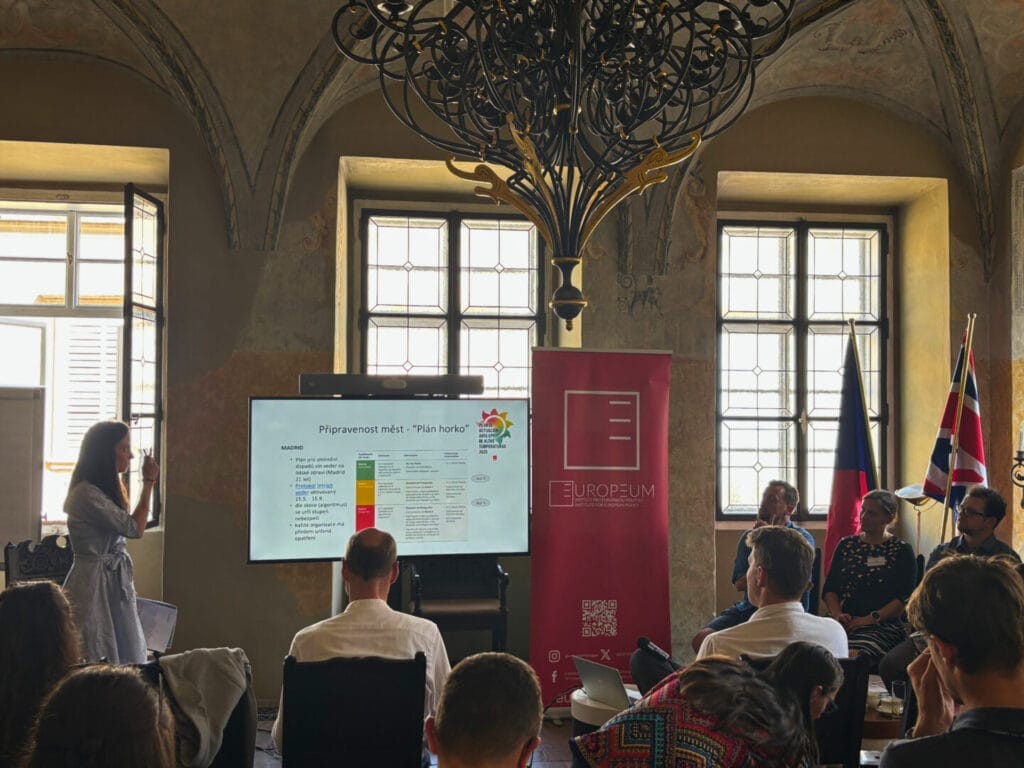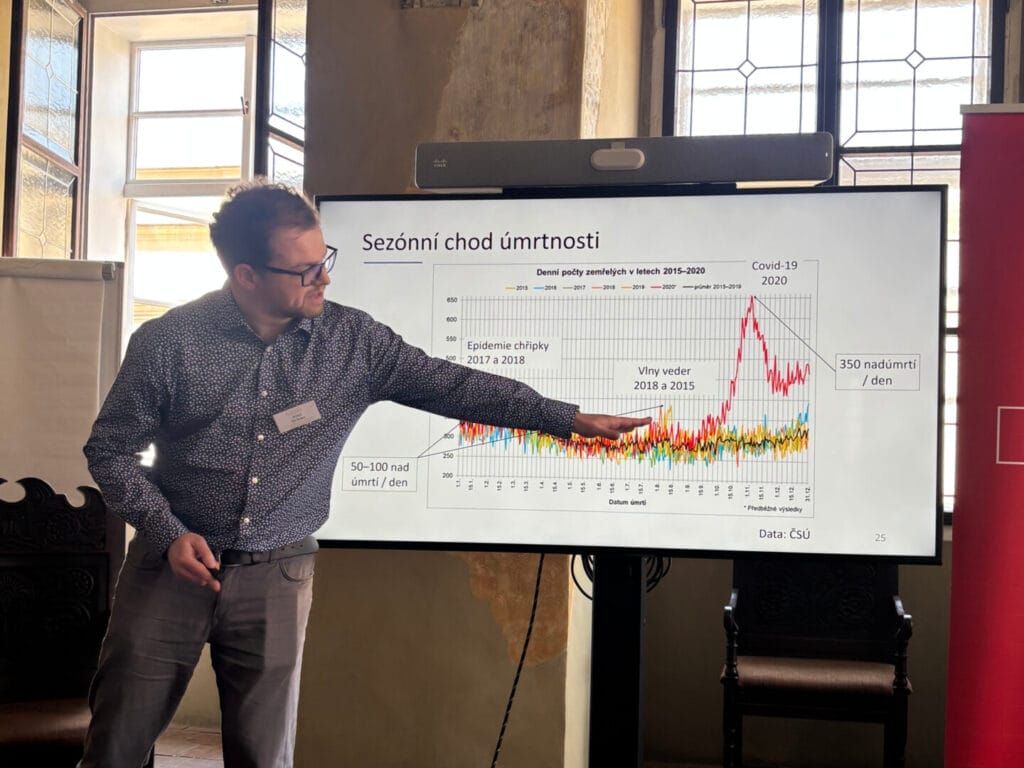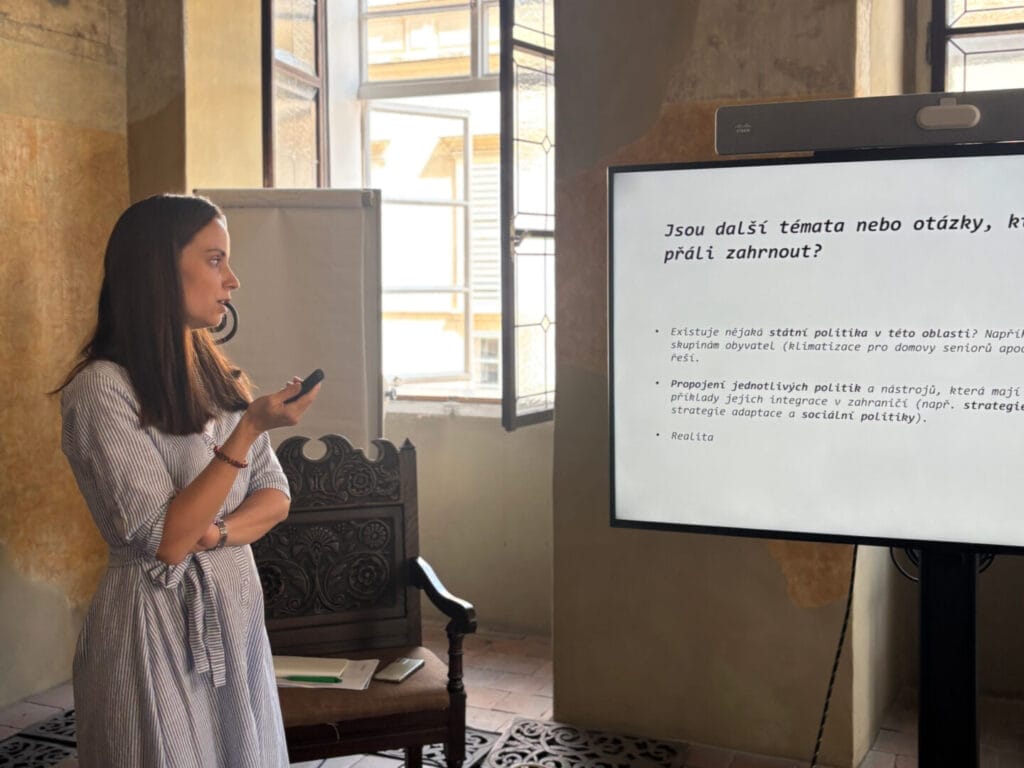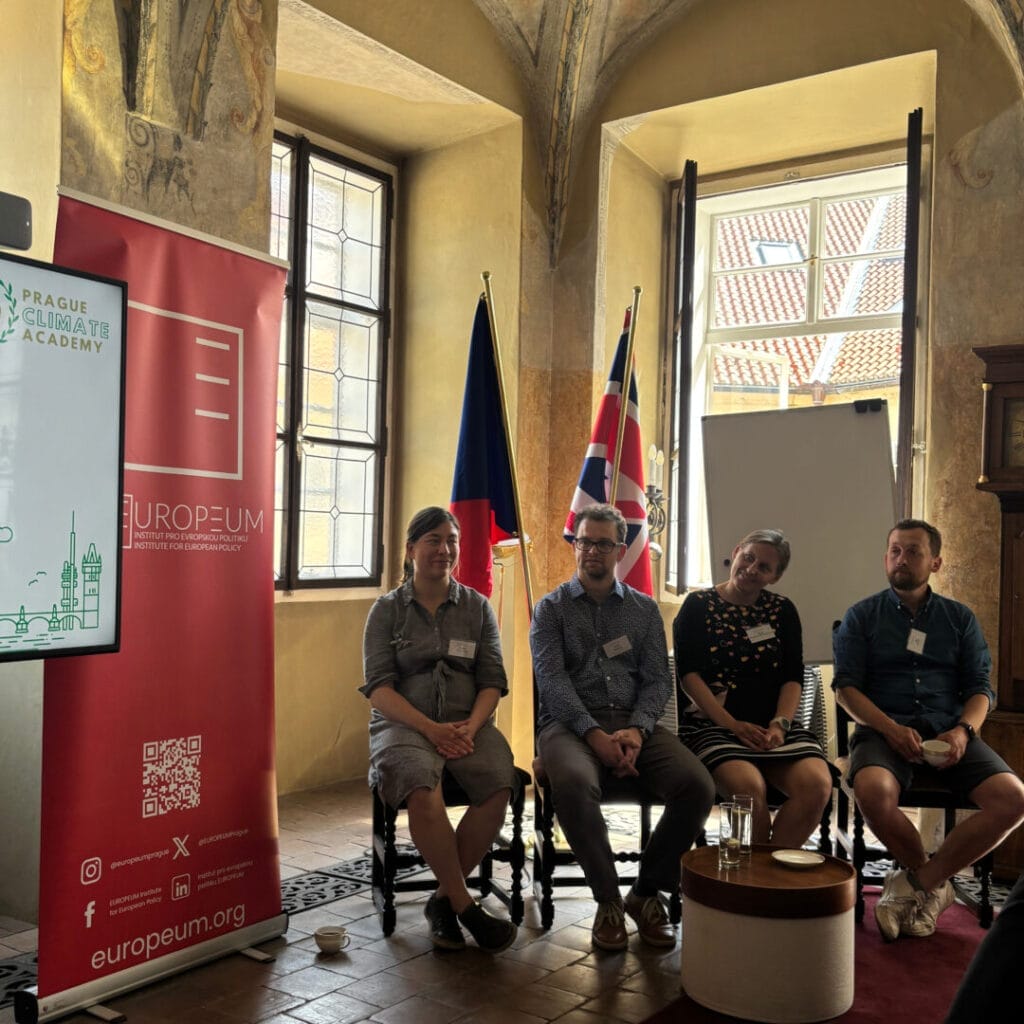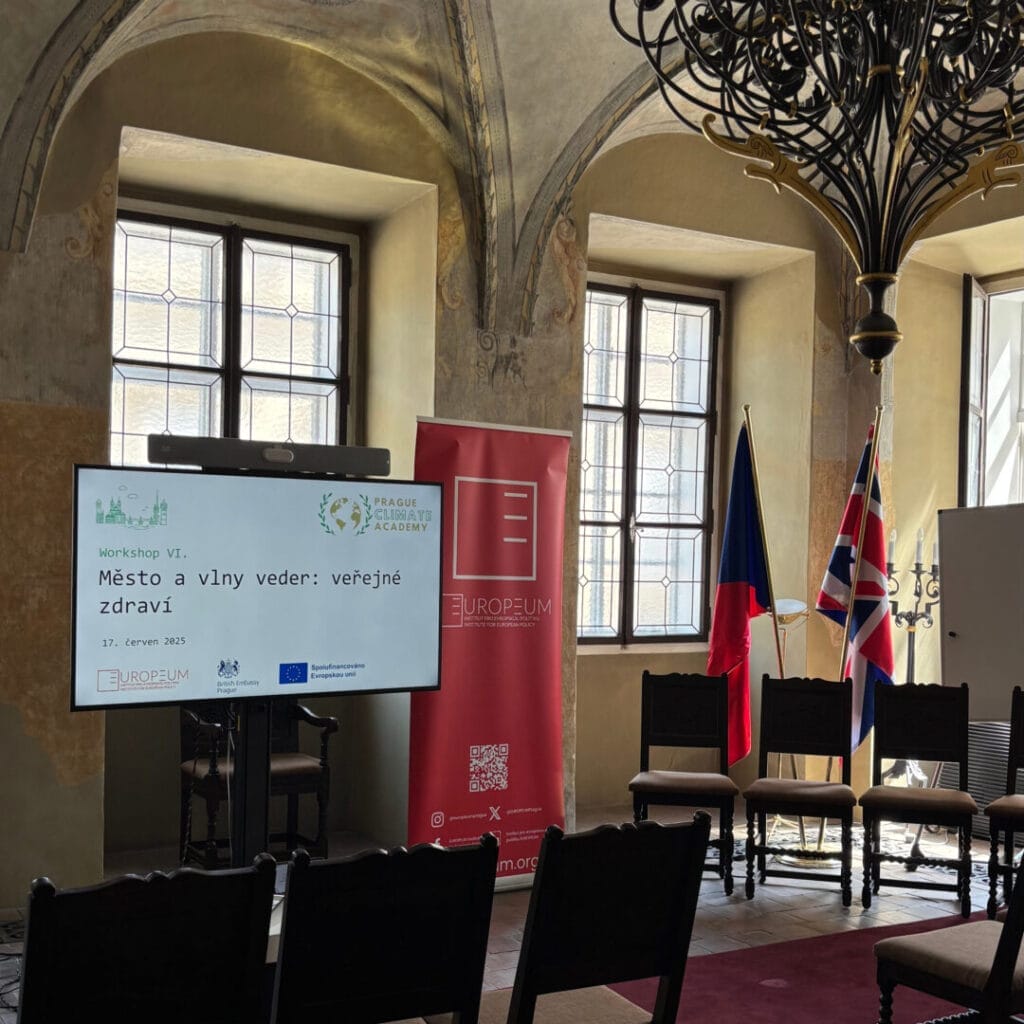REPORT: Prague Climate Academy – Cities and Heat Waves: Public Health
According to experts, it is not only the average annual temperature that is increasing, but especially the intensity, frequency and length of heat waves. The interaction between the urban surface and the atmosphere, such as the low reflectivity of asphalt surfaces or the lack of vegetation, also plays a major role. This is why the adaptation of public space to extreme temperatures is important.
Eva Pejchová Plavcová (Academy of Sciences of the Czech Republic) pointed out that “the severity of heat waves is not just about the temperature itself, but also their duration, spatial extent, and timing; the same temperature can be less dangerous if one plans to rest by the water.”
Anna Kšírová (Doctors for Future) explained the health mechanisms that extreme heat triggers in the body: “Blood pressure and fluid volume in the body drop, leading to insufficient oxygenation of vital organs. The brain reacts most sensitively to this condition. We lose ions, swelling can occur, and in such a moment, it is necessary to call an ambulance immediately.”
Aleš Urban of the Academy of Sciences of the Czech Republic summarised the trends in mortality data, “The impact of extreme heat on mortality throughout the year will continue to increase, especially in Central Europe, which is not climatically or systemically prepared for heat waves.”
Jan Richtr (Department of Environmental Protection Prague, adaptacepraha.cz): "Prague is warming faster than the rest of the country. The most significant changes are taking place in the city centre, which is now the warmest area in the Czech Republic. Temperatures remain high here after sunset and night-time warming in central Prague is up to 70% faster than in the rest of the country."
The conclusions of the discussion confirmed that heat waves are not only a climatological phenomenon, but also a public health and urban planning challenge that needs to be prepared for through adaptation measures and good interdisciplinary cooperation.
Discussions moderated by EUROPEUM Associate Research Fellow Katarína Svitková.
Find out more about Prague Climate Academy here.
